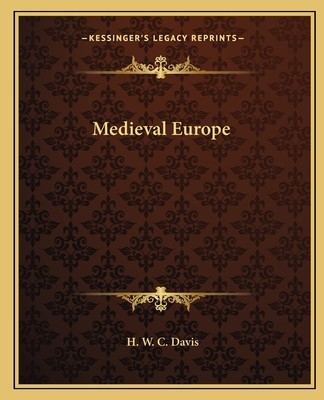
- We will send in 10–14 business days.
- Author: H W C Davis
- Publisher: Kessinger Publishing
- ISBN-10: 1163073644
- ISBN-13: 9781163073643
- Format: 19.1 x 23.5 x 0.6 cm, softcover
- Language: English
- SAVE -10% with code: EXTRA
Reviews
Description
One group of kingdoms was founded under cover of a legal fiction; the Visigoths, the Ostrogoths, and the Burgundians claimed to be the allies of the Empire. At one time or another they obtained the recognition of Constantinople for their settlements. Their kings accepted or usurped the titles of imperial administrators, stamped their coins with the effigies of the reigning Emperor, dated their proclamations by the names of the consuls for the year, and in many other ways flaunted their nominal subjection as the legal basis of their actual sovereignty. This fiction did not prevent them from governing their new dominions in true Teutonic fashion, through royal bailiffs, who administered the state demesnes, and military officers (dukes, counts, etc.) who ruled with autocratic sway over administrative districts.
EXTRA 10 % discount with code: EXTRA
The promotion ends in 17d.06:44:46
The discount code is valid when purchasing from 10 €. Discounts do not stack.
- Author: H W C Davis
- Publisher: Kessinger Publishing
- ISBN-10: 1163073644
- ISBN-13: 9781163073643
- Format: 19.1 x 23.5 x 0.6 cm, softcover
- Language: English English
One group of kingdoms was founded under cover of a legal fiction; the Visigoths, the Ostrogoths, and the Burgundians claimed to be the allies of the Empire. At one time or another they obtained the recognition of Constantinople for their settlements. Their kings accepted or usurped the titles of imperial administrators, stamped their coins with the effigies of the reigning Emperor, dated their proclamations by the names of the consuls for the year, and in many other ways flaunted their nominal subjection as the legal basis of their actual sovereignty. This fiction did not prevent them from governing their new dominions in true Teutonic fashion, through royal bailiffs, who administered the state demesnes, and military officers (dukes, counts, etc.) who ruled with autocratic sway over administrative districts.


Reviews